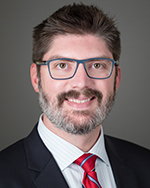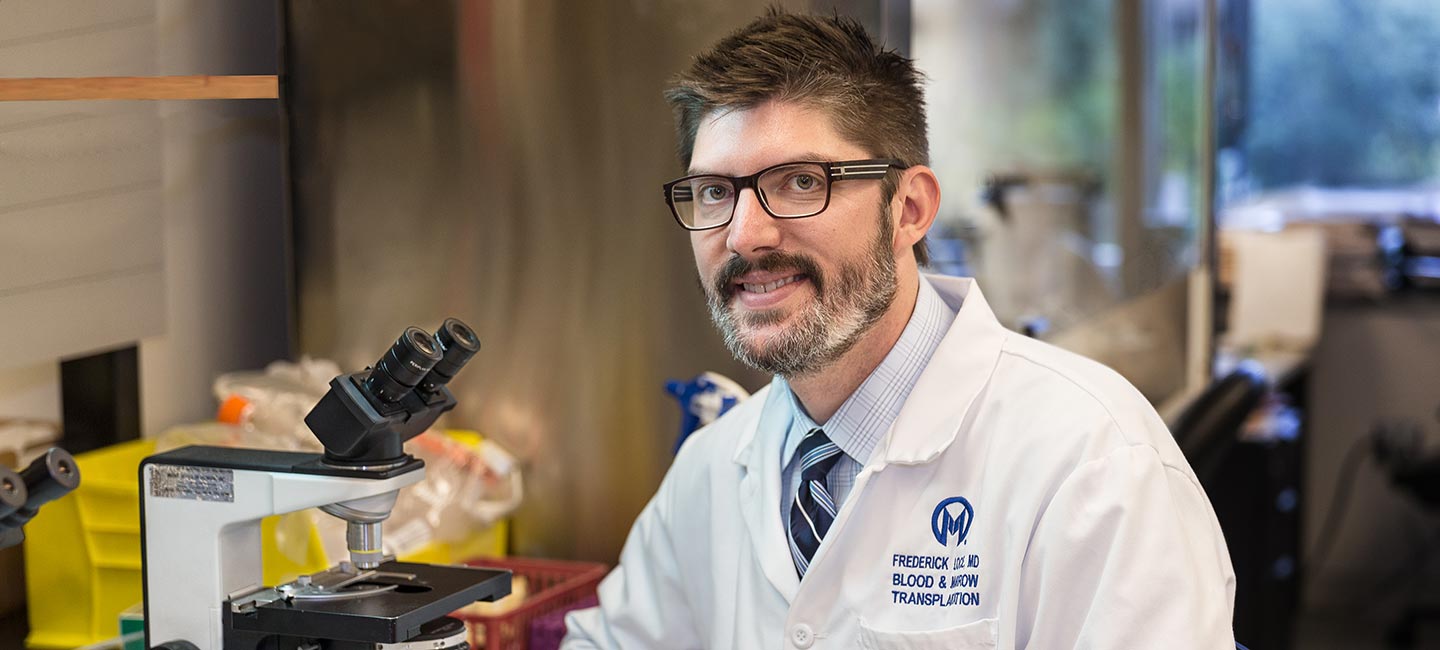What’s Next in Cellular Immunotherapy?
Dr. Frederick Locke is a medical oncologist at Moffitt Cancer Center. He is the vice chair of Department and co-leader of the Immunology Research Program. He has led many clinical trials, including the pivotal ZUMA-1 trial that led to the Food and Drug Administration approval of Yescarta® - the first chimeric antigen receptor T-cell therapy (CART T) approved for adults with relapsed/refractory diffuse large B cell lymphoma.
- Can you tell us more about allogeneic chimeric antigen receptor T-cell therapy, also referred to as ‘off the shelf’ CAR T? Are we moving in the direction where that can be more of a universal therapy?

Dr. Frederick Locke, medical oncologist
Current U.S. Food and Drug Administration (FDA) approved CAR T-cell therapies for lymphoma and leukemia utilize autologous T-cells to turn into CAR T-cells. Autologous, meaning a patient's own T-cells. These new allogeneic CAR T-cell therapies are using T-cells from a healthy donor to turn into those CAR T-cells. Clinical trials are still in phase one for the most part, so it’s still very early. However, we are starting to see preliminary results from those trials suggesting that an allogeneic CAR T-cell therapy can be safe, but we need more follow-up to see if it can be as effective as the autologous CAR T-cell therapies. - Can a single donor produce CAR T-cells for multiple patients?
In most of the allogeneic CAR T-cell therapies that are being tested, they are using healthy donor T-cells from one or a small number of healthy donors. The process is such, that they can utilize cells from one donor and make CAR T-cells for many, many patients. There will be a need for more than one donor, of course, especially if these prove to have efficacy and can be rolled out, FDA approved and used for many more patients. But it is true that one donor can produce CAR T-cells for many, many patients. - What are some advantages of allogeneic CAR T-cell therapy?
There are several advantages to an allogeneic CAR T-cell that one could foresee. It's quite expensive to manufacture bespoke CAR T-cells, having to take a patient's own T-cells any time they need a treatment and manufacture those in the lab. Not only does it take time, its very labor intensive, the equipment and supplies are expensive and it has to be done relatively quickly. So if you had an ‘off the shelf’ CAR T-cell product from a healthy donor that is ready to go, you could simply reach into the freezer to grab it and give it to the patient. That's one advantage – it could be cheaper and more efficient to mass produce these ahead of time. The first step before we are certain that it's cheaper and saves time is to show that these healthy donor CAR T-cells can work. - Are there more toxicities associated with these types of ‘off the shelf’ treatments?
The first step is to show that these therapies can be safe and can put patients into remission. The toxicities we see with autologous CAR T-cells include cytokine release syndrome, neurologic encephalopathy and neurologic toxicities. These affects are also seen with allogeneic ‘off the shelf’ CAR T-cells. However, there are additional potential toxicities from allogeneic CAR T-cells. They may cause graft-versus-host disease or they could just be rejected by the patient's own immune system. It adds a layer of complexity when we work to do this in allogeneic CAR T-cells. - Where are we with the ability to use CAR T therapy for solid tumors?
If we're going to talk about CAR T-cell therapy, it's still early for solid tumors. We don't have widespread successes using CAR T-cell therapy for solid tumors. However, there are some successes that we're seeing in the cellular therapy space for solid tumors. In particular, what we call TILs or tumor infiltrating lymphocytes. These T cells are immune cells taken from within the patient's own tumor. A tumor is resected and the T cells that reside within that tumor, that could recognize the tumor but aren't working to put the patient in remission, are grown in the laboratory and then administered back to the patient after they've been multiplied many, many times. We've determined that these TILs are safe for patients with melanoma and now for several other malignancies including lung, cervical and head and neck cancer. They can be safely administered and put patients in remission. We may see FDA approval for TIL therapy for melanoma and possibly cervical carcinoma within the next year or two.



